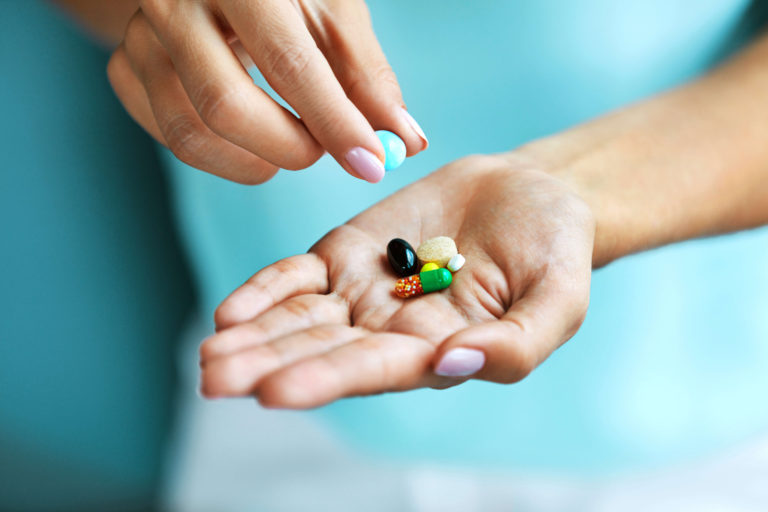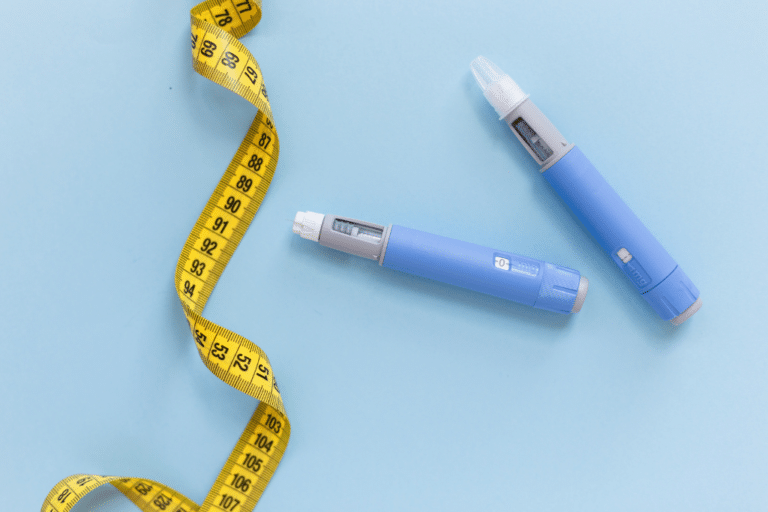Stress has affected people for thousands of years.
In ancient times, people used herbal therapies celebrated in traditional Chinese medicine and Ayurveda for stress support. If you’re skeptical, rest assured that more and more clinical studies are lending credibility to long-held beliefs regarding the impact of herbal medicines. Here are some of my favorites, but do your own due diligence before beginning any of them. And none of these is a substitute for creating a healthy foundation with a lifestyle.
Herbs for Stress Support
Ashwagandha
Ashwagandha has a long history in traditional Ayurvedic medicine. The entire plant, from roots to seeds, has beneficial properties, especially when it comes to stress reduction. The benefits of ashwagandha are wide-ranging, but it’s a superstar when it comes to helping people to feel less stressed. One particularly interesting study from 2017 showed a 44% reduction in stress levels after taking ashwagandha, as opposed to just a 5.5% decrease in the group taking a placebo. A randomized 2012 clinical trial showed similarly impressive levels of stress reduction after just 60 days of use. This herb is great for stress support.
Rhodiola
Rhodiola is a plant native to the arctic regions of Asia and Europe. It has a history of medical usage dating all the way back to 77 AD. This plant, also known as Golden Root, is used for energy enhancement, to improve mood, and most critically, to reduce stress. In a 2009 double-blind study, rhodiola was shown to reduce stress, and increase alertness in doctors on night shifts. The most extensively studied property of this herb is its ability to help people deal with fatigue. Since exhaustion often contributes to stress, anything that reduces fatigue can help in the battle against stress. Be aware that rhodiola can be activating for some people, so do not take it late in the day.
Valerian root
Valerian root is well-known for helping with sleep issues, including insomnia. This is largely due to its calming, sedative effect. The best part? It doesn’t have the unpleasant side effects of medications typically used for these symptoms, like grogginess, or lead to dependence. The worst part? It smells terrible. Because lack of sleep is a trigger for stress, one of the best things you can do to improve your stress levels is get a good night’s rest. If valerian root helps, it can be a potent, low-side-effect tool in your de-stressing arsenal.
Bacopa
Bacopa monnieri is a perennial herb that has proven stress-reducing benefits. It’s been used as part of Indian Ayurvedic medicine for centuries to enhance learning, boost memory, sharpen focus, lower stress, and improve mood. Modern research has also focused on Bacopa’s ability to relieve stress, which it achieves partly by lowering cortisol levels.
Vitamins and Minerals that Help Stress
Vitamin B complex
Stress depletes B vitamins and this leads to low energy and fatigue. B vitamins are well-known for keeping energy levels high and improving cognitive performance. Choose a product that contains pre-methylated Bs such as l-methylfolate (folate) or methylcobalamin (B-12). A significant proportion of the population is unable to methylate Bs due to MTHFR variants which can cause a buildup of them. Having too much folic acid in the body can result in a variety of signs and symptoms. Less serious side effects of too much folic acid include digestive problems, nausea, loss of appetite, bloating, gas, a bitter or unpleasant taste in the mouth, sleep disturbances, depression, excessive excitement, irritability, and zinc deficiency. More severe signs include psychotic behavior, numbness or tingling, mouth pain, weakness, trouble concentrating, confusion, fatigue, and even seizures. You can read more about MTHFR variants here and here.
Magnesium
Magnesium is a mineral that is essential for muscle and nerve function. Multiple studies have shown that magnesium is especially crucial for sleep and many a savvy sister in my practice (including myself), has been helped by adding magnesium at bedtime. As mentioned, sleeplessness and stress go hand-in-hand. We all know the struggle and frustration of tossing and turning in bed all night. If that is something you struggle with, magnesium is worth considering. It can also help with restless leg syndrome.
These lists of herbs and supplements are not the only pharmaceutical alternatives but are low-risk starting places for women who like a do-it-yourself approach. To keep reading about foundational supplements for those in perimenopause and menopause, click here. For more expert help, please feel free to schedule a consultation with me at www.drannagarrett.com/lets-talk.
Dr. Anna Garrett is a menopause expert and Doctor of Pharmacy. She helps women who are struggling with symptoms of perimenopause and menopause find natural hormone balancing solutions so they can rock their mojo through midlife and beyond. Dr. Anna is the author of Perimenopause: The Savvy Sister’s Guide to Hormone Harmony. Order your copy at www.perimenopausebook.com.
Dr. Anna is available for 1-1 consultation. Find out more at www.drannagarrett.com/lets-




